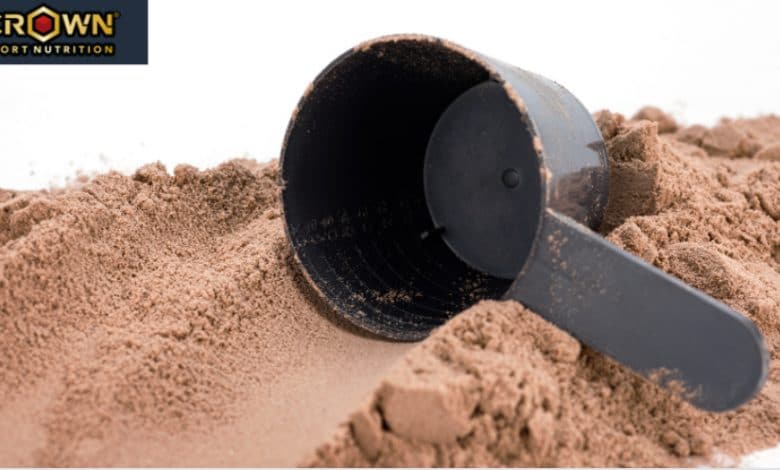Is it good for the athlete to take protein before bed?

Our friends Crown Sport Nutrition They bring us on this occasion a very interesting article for the readers of Triathlon News.
tell us if it's good eat protein before bed for sports performance.
As every athlete knows, proteins play a fundamental factor both in sports performance and in people's health.
Thanks to them, the tissues of the organism are created and recovered. such as muscle mass, something very important in sports practice.
That is why it is very important to have a optimal protein intake, since it seeks to accelerate recovery or gain muscle mass, whether in athletes or in people of any age.
Keep in mind that if not enough protein is consumed there could be a loss of muscle mass (what is known as sarcopenia) .
protein in endurance sports
The consumption of proteins in endurance sports was not very popular some time ago, but it is essential since it is necessary that they have a high protein intake.
This is important, since due to the amount of training and volume they do, they usually have an energy deficit due to volume or inadequate calorie intake. When the body is not well nourished, it has to use protein as an energy source., leading to loss of muscle mass
Athletes who practice endurance sports have to take into account that its protein requirements are greater than those that a natural diet can provide them (up to 1,5 – 2,0 g of protein per kg of body weight per day) so supplementation is essential.
Many studies have shown that protein supplementation helps increase muscle mass, strength and increase the speed of recovery from training.
Take protein before bed? Which has benefits?
In recent years protein supplementation has been taking more prominence in the world of sports performance.
To understand how it works, you have to know that muscle mass is the result of muscle synthesis and catabolism processes that alternate throughout the day.
When a strength training, and if protein is ingested, protein synthesis is increased after exercise, while if a training on an empty stomach or without consuming protein catabolism occurs, at which point muscle mass is lost, as the balance becomes negative.
Casein
In recent years, the consumption of casein (slow absorbing protein) before bedtime has been gaining popularity due to the theory that it increases protein synthesis during sleep (nocturnal muscle catabolism is prevented).
Analyzing this, it has been observed higher values of protein synthesis in people who finished their training around 9 at night and took 40 grams of casein before going to sleep (about 23:30 p.m.).
This confirms the potential benefits of protein supplementation before bedtime.
What the scientific studies say
In fact, the latest scientific publications, such as the case of a systematic review of 9 studies on this subject, they have concluded that supplementing with 20 – 40 grams of casein about 30 minutes before bedtime, stimulates protein synthesis during the night and improves the adaptive responses of the muscle, such as increased muscle mass or strength if performed long-term.
In a study of 44 young people who did strength training for 12 weeks, it was shown that athletes who had consumed 27,5 grams of protein before going to sleep increased their strength and quadriceps cross-sectional area when compared to those who took a placebo.
In another study, this time with soccer players, it was shown that if you consumed 40 grams of casein 30 minutes before going to sleep had better performance the next day in matches, showing a better jumping capacity and a lower perception of muscle pain.
Conclusions
Analyzing the scientific publications on this topic shows that cThere is more and more evidence about the improvement offered by the consumption of protein before bed.
The approx. 40 grams of casein before bed could benefit the athlete by increasing protein synthesis during the night and thus favoring the recovery processes and the gain of muscle mass and strength.
In what There is no consensus as to whether these effects are due to the fact that they are taken before going to sleep or because the amount of total protein is increased during the day.
Either in one way or another, protein intake before bed is an option that any athlete should consider to improve their performance.
References
Jäger R, Kerksick CM, Campbell BI, et al. International Society of Sports Nutrition. Position Stand: Protein and exercise. J Int Soc Sports Nutr. 2017;14(1):1-25. doi:10.1186/s12970-017-0177-8 Snijders T, Trommelen J, Kouw IWK, Holwerda AM, Verdijk LB, van Loon LJC. The impact of pre-sleep protein ingestion on the skeletal muscle adaptive response to exercise in humans: An update. Front Nutr. 2019;6(March):1-8. doi:10.3389/fnut.2019.00017 Res PT, Groen B, Pennings B, et al. Protein ingestion before sleep improves post-exercise overnight recovery. Med Sci Sports Exerc. 2012;44(8):1560-1569. doi:10.1249/MSS.0b013e31824cc363 Reis CEG, Loureiro LMR, Roschel H, da Costa THM. Effects of pre-sleep protein consumption on muscle-related outcomes — A systematic review. J Sci Med Sport. 2021;24(2):177-182. doi:10.1016/j.jsams.2020.07.016 Snijders T, Res PT, Smeets JS, et al. Protein Ingestion before Sleep Increases Muscle Mass and Strength Gains during Prolonged Resistance-Type Exercise Training in Healthy Young Men. J Nutr. 2015;(C):1-7. doi:10.3945/jn.114.208371.1 Abbott W, Brett A, Cockburn E, Clifford T. Presleep Casein Protein Ingestion: Acceleration of Functional Recovery in Professional Soccer Players. Int J Sport Physiol Perform. 2019;14(3):385-391. Joy JM, Vogel RM, Shane Broughton K, et al. Daytime and nighttime casein supplements similarly increase muscle size and strength in response to resistance training earlier in the day: A preliminary investigation. J Int Soc Sports Nutr. 2018;15(1):1-9. doi:10.1186/s12970-018-0228-9
There are no previous results.




























